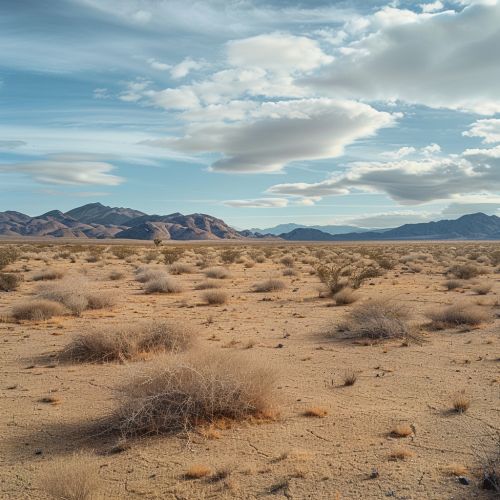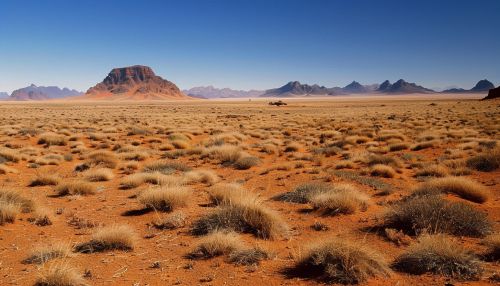Barstow, California
History
Barstow, California, is a city with a rich historical background situated in San Bernardino County. The area was originally inhabited by the Mojave and Chemehuevi Native American tribes. The city’s history dates back to the 1840s when it became a key stop along the Mormon Road, a major trade route connecting Salt Lake City to Los Angeles. The discovery of gold in the nearby Calico Mountains in the late 19th century further spurred the growth of Barstow as a mining town.
The city was named after William Barstow Strong, the president of the Atchison, Topeka and Santa Fe Railway, which played a significant role in the development of the region. The arrival of the railroad in the 1880s transformed Barstow into a critical transportation hub, facilitating the movement of goods and people across the southwestern United States.
Geography
Barstow is located in the Mojave Desert, approximately halfway between Los Angeles and Las Vegas. The city covers an area of 107.2 square kilometers and is characterized by its arid climate, with hot summers and mild winters. The Mojave River runs through the city, although it is often dry due to the desert environment.


Economy
The economy of Barstow has historically been tied to transportation and logistics, given its strategic location along major highways such as Interstate 15 and Interstate 40. The city serves as a significant stopover point for travelers and truckers, contributing to its hospitality and retail sectors.
In recent years, Barstow has also seen growth in its industrial and manufacturing sectors. The presence of the Marine Corps Logistics Base Barstow provides a stable source of employment and economic activity. Additionally, the city is home to several distribution centers and warehouses, leveraging its connectivity to major transportation routes.
Demographics
As of the 2020 census, Barstow had a population of approximately 23,000 residents. The city is ethnically diverse, with significant Hispanic, African American, and Native American communities. The median household income is lower than the national average, reflecting the economic challenges faced by many residents.
Education
Barstow is served by the Barstow Unified School District, which operates several elementary, middle, and high schools in the area. The city is also home to Barstow Community College, which offers a range of associate degree programs and vocational training. The college plays a crucial role in providing higher education opportunities to the local population.
Transportation
Barstow’s strategic location makes it a critical transportation hub in the southwestern United States. The city is intersected by major highways, including Interstate 15, which connects Southern California to Las Vegas, and Interstate 40, which extends eastward to the Atlantic coast. The Barstow-Daggett Airport serves general aviation needs, while the Barstow Station offers bus and rail services.
Culture and Attractions
Barstow boasts several cultural and historical attractions. The Route 66 Mother Road Museum celebrates the history of the iconic highway, which passes through the city. The Western America Railroad Museum showcases the region’s rich railroad heritage. Additionally, the nearby Calico Ghost Town offers a glimpse into the area’s mining past.
The city hosts various annual events, including the Barstow Rodeo and the Barstow Film Festival, which attract visitors from across the region. The Mojave National Preserve and the Rainbow Basin Natural Area provide opportunities for outdoor recreation and exploration.
